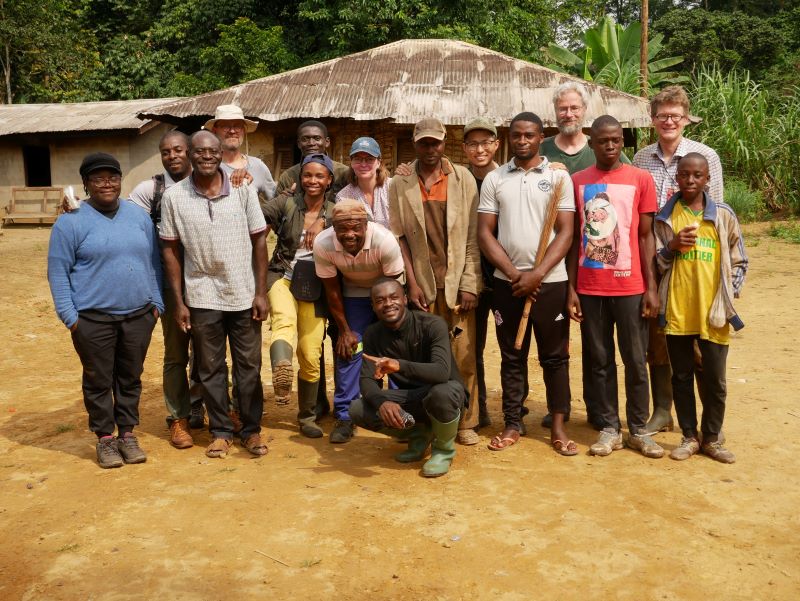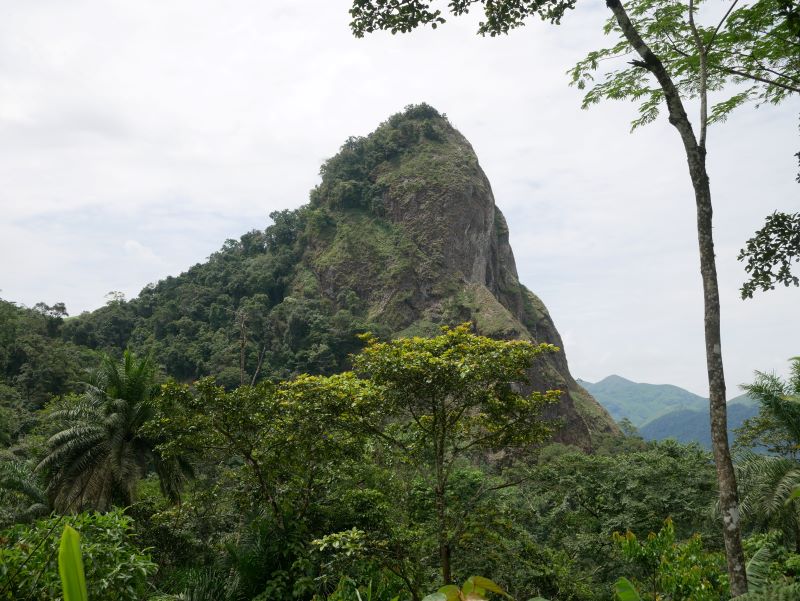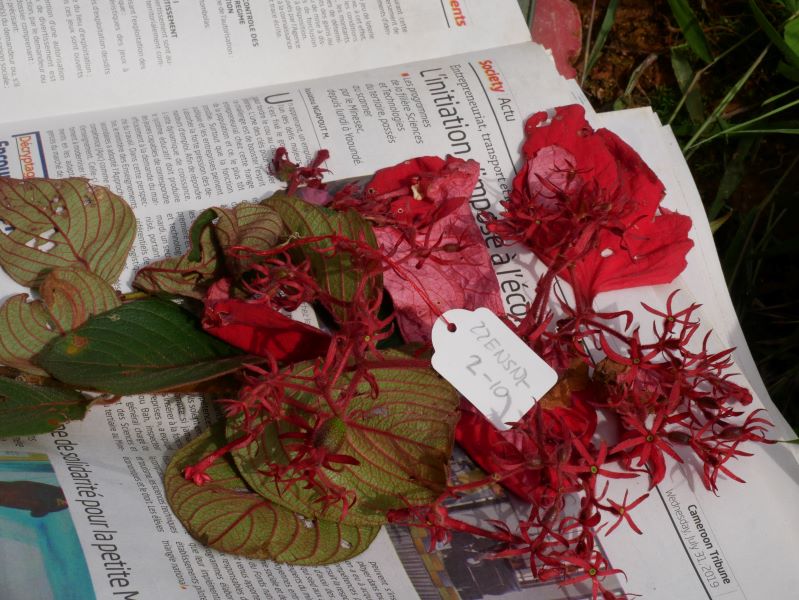Research of the botanical diversity of Cameroon
Four botanical expeditions in the years 2022 to 2024 marked the start and consolidation of a long-term collaboration between the Princess Therese of Bavaria Chair of Systematics, Biodiversity and Evolution of Plants at the University of Munich, the Botanical State Collection, the Munich-Nymphenburg Botanical Garden and our partner institution in Cameroon, the Laboratoire de Botanique Systématique et d’Écologie of the Ecole Normale Supérieure of the University of Yaoundé. This involves botanical research into the mountain rainforests of the so-called Cameroon Line, a mountain range of volcanic origin that stretches from the islands in the eastern part of the Gulf of Guinea far into the northeast of Cameroon. The aim of the cooperation is on the one hand to contribute to the development of the extremely diverse flora of Cameroon and on the other hand to carry out current research projects on the evolution and biogeography of selected genera of West African mountain rainforests with the collected material.
Plant material for the Botanic Garden and the Botanical State Collection
The Bandoumkassa region in north-western Cameroon was the first, botanically virtually unexplored destination of the expeditions. These took place during different seasons in order to gain a broad insight into the flora and vegetation. The expedition teams collected a total of over 2500 specimens for the Botanical State Collection, the herbarium of the Ecole Normale Supérieure and other important herbaria, as well as 250 accessions of living plants for the Botanical Garden. On the basis of the living material, one public greenhouse (house 4b) was dedicated to the flora of Cameroon.
New insights for botanical science
Selected species from the Cameroon collections will be sequenced for the “Plant and Fungal Trees of Life” Initiative of the Royal Botanic Gardens in Kew in order to increase the proportion of African taxa and thus create a better basis for phylogenomic research with African genera. Our expeditions also enable Master’s students and PhD students of our partners from Yaoundé, Prof. Dr. Bonaventure Sonké and Dr. Moses Libalah, to carry out field work and participate in the joint projects.
A first publication on the genus Myrianthemum with material from the first expedition has already been published (Chen et al. 2023). Obviously, the collections include a number of taxa new to science that will be described over the next few years. The Bandoumkassa region probably represents another hotspot of West African mountain rainforest flora.



The expeditions were financed by the Princess Therese von Bayern Foundation, the Elfriede and Franz Jakob Foundation and the Society of the Friends of the Munich Botanical Garden. Funding was also obtained from the German Research Foundation.
Publication:
Chen L., Kadereit G. & Veranso-Libalah M.C. 2023. Combining Angiosperms353 and Sanger data provides support for the reinstatement of the genus Myrianthemum (Melastomataceae). Botanical Journal of the Linnean Society 203: 123–133. https://doi.org/10.1093/botlinnean/boad024

